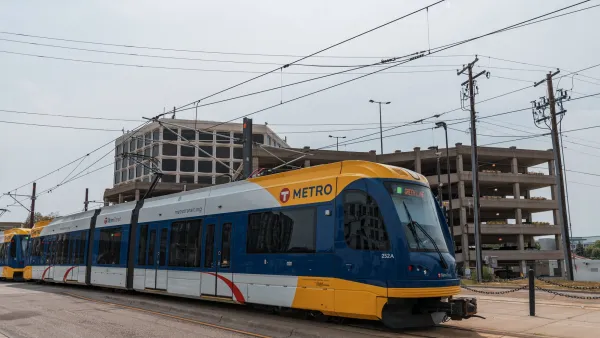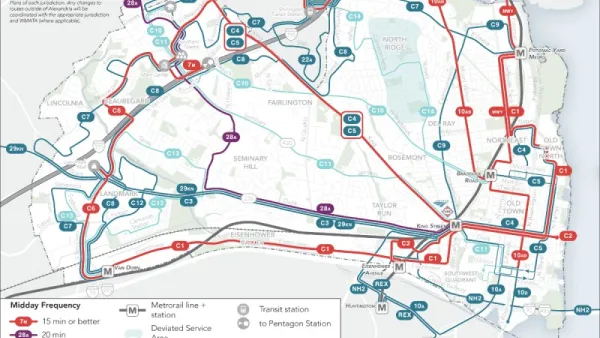A few weeks ago, I was reading yet another think-tank paper arguing against new rail projects. Amidst the sea of technical detail, one assertion bothered me: the common claim that bus service is more “flexible” than rail.
A few weeks ago, I was reading yet another think-tank paper
arguing against new rail projects.
Amidst the sea of technical detail, one assertion bothered me: the
common claim that bus service is more "flexible" than rail.
Indeed it is- and that's precisely what's wrong with
it. Flexibility means unreliability. In particular, flexibility means that politicians can eliminate your bus service whenever
recession or overspending in other areas leads to a fiscal crisis. Bus service is an easy target: it often
serves people too poor to give campaign contributions or become politically
organized, and its environmentalist supporters have dozens of other issues to
worry about. For example, in Denver bus ridership is
rising- yet due to increased fuel costs, service may actually be reduced. (See http://www.9news.com/news/article.aspx?storyid=91837
)
Politicians tend to justify bus cutbacks by stating that
they are merely reducing low-performing service. But as long as there is more than one bus
route in a city, some routes will always have fewer riders than others. So this theory, if consistently applied,
would ultimately lead to the elimination of every route but the most popular
one- hardly a desirable result.
By contrast, recessions and other economic problems tend to
have a relatively modest impact on rail and highway service- perhaps because
the larger up-front costs of rail and highway expansion cannot be recovered by
cutbacks in service, perhaps because affluent, politically influential people
are more willing to drive or ride trains.
Does the reliability of rail service mean transit supporters
and users should support new rail service in every city? Not necessarily; obviously, intracity rail
service is not practical everywhere.
But certainly, this factor is one of many relevant considerations – a
thumb on the scale favoring construction of new subways and light rail systems.
Of course, it is certainly possible to make bus service less
vulnerable to the political winds. For
example, imagine an America in which state or federal civil rights law protected bus
service from cutbacks, on the grounds that cutting bus service without blowing
up the occasional highway or two had a disproportionate impact on racial minorities or adversely affected air quality. In such an America, bus service would be as politically impregnable
as highways or even rail service- and I would certainly be less willing to support
rail service in my city.
But of course, that's not the America I live in.

Analysis: Cybertruck Fatality Rate Far Exceeds That of Ford Pinto
The Tesla Cybertruck was recalled seven times last year.

National Parks Layoffs Will Cause Communities to Lose Billions
Thousands of essential park workers were laid off this week, just before the busy spring break season.

Retro-silient?: America’s First “Eco-burb,” The Woodlands Turns 50
A master-planned community north of Houston offers lessons on green infrastructure and resilient design, but falls short of its founder’s lofty affordability and walkability goals.

Test News Post 1
This is a summary

Analysis: Cybertruck Fatality Rate Far Exceeds That of Ford Pinto
The Tesla Cybertruck was recalled seven times last year.

Test News Headline 46
Test for the image on the front page.
Urban Design for Planners 1: Software Tools
This six-course series explores essential urban design concepts using open source software and equips planners with the tools they need to participate fully in the urban design process.
Planning for Universal Design
Learn the tools for implementing Universal Design in planning regulations.
EMC Planning Group, Inc.
Planetizen
Planetizen
Mpact (formerly Rail~Volution)
Great Falls Development Authority, Inc.
HUDs Office of Policy Development and Research
NYU Wagner Graduate School of Public Service




























